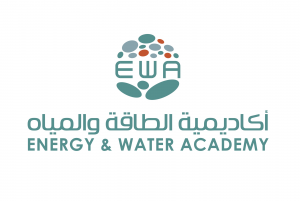Completion requirements
The purpose of this policy is to outline the approach taken by EWA to train and assess Trainees and ensure that training and assessment strategies and practices are responsive to industry and learner needs and meet the requirements of training packages. The examination policy is to ensure that exams are conducted in a professional and academically sound manner within the academic honesty policies of EWA.
Objectives:
- Implementing a comprehensive Training and Assessment Strategy for each of the course’s EWA undertakes to deliver.
- Engaging with industry to ensure industry needs are met.
- Supporting Trainees to meet the requirements of their course and to complete the relevant training.
- Implementing an assessment system that meets the requirements of the training package.
Process:
- Training and Assessment Strategies will be validated on a regular basis and updated where necessary to ensure they are in line with changes in industry technology and techniques, legislation, the training package, and the availability of resources within EWA.
- To ensure Trainees meet the requirements of their course and to maximize their chance to successfully complete their training, the Steering committee will:
- Determine the level of support needed for individual Trainees prior to their enrolment in a course.
- Provide access to educational and support services such as providing assistive technology, additional tutorials and/or assistance in using technology as may be necessary, for the individual Trainees to meet the requirements of their course.
- Identify particular requirements such as literacy, numeracy, English language or physical capabilities Trainees would need so as to complete their course
- Develop and document support strategies where gaps are identified.
- To meet the assessment requirements of the training package, the Steering committee will implement the following assessment systems:
- Assessment methods and tools will be developed on the basis of the employability factors such as:
- Behaviour
- Participation
- Attendance
- Assessment tools will include components such as:
- Quizzes (Written or Computer based).
- Workshop practises.
- Final Practical Test.
- Final Theory Test.
- For a Trainee to be assessed as competent they will:
- Undertake all required tasks identified in the elements of the unit.
- Demonstrate that they can perform these tasks to an acceptable level and in a variety of workplace situations, or accurately simulated workplace situations.
- Demonstrate their ability to do so in different contexts and environments.
- Each trainee will undergo regular evaluation, and a monthly progress report on trainee progress shall be prepared. The said progress reports will comprise the following:
- Weekly attendance rates, including number of periods of authorised absence AND unauthorised absence.
- Comments on language performance and progress
- Comments on technical performance and progress
- Each trainee’s progress will be graded as Excellent, Very Good, Good, Average, Poor based on the above parameters.
- The Steering Committee will regularly monitor the progress of the Trainees.
A final examination schedule will be distributed to each Trainee prior to the end of the term. It shall indicate the day and time a particular class should meet during Finals Week for the purpose of taking a final exam.
Background Colour
Font Face
Font Size
1
Text Colour
